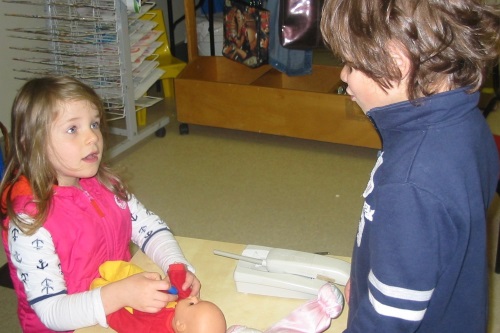Learning to self-regulate emotions and actions (3-7 years)

Facilitated by Jo Fahey
Since self-regulation is central to lifelong success as a learner, how can we help children in early childhood settings to learn to self-regulate? By observing and sometimes participating in children’s pretend play and leading process drama, educators can guide this essential learning. Another important component is engaging children in guided discussion and restorative justice processes.
Besides developing children’s intellectual and social skills, socio-dramatic play and process drama provide ideal opportunities for children to learn the skills of self-regulation. Collaboration and negotiation are naturally present in authentic role-play situations. Strategies to support this process will be explored in this workshop.
Jo will focus on:
- Children developing executive function – impulse control, cognitive flexibility and working memory
- Children learning self-regulation ‘in-role’
- Children learning self-regulation ‘out-of-role’
- The educator as an ‘emotion coach’ for children in their daily experiences
- Engaging children in restorative justice processes
Embedded in Jo’s workshop will be ways in which educators enable children to make choices, take responsibility and show what they know and can do, as well as how they feel.
Contact Jo Fahey: [email protected]
Click here to download a pdf of this page.


